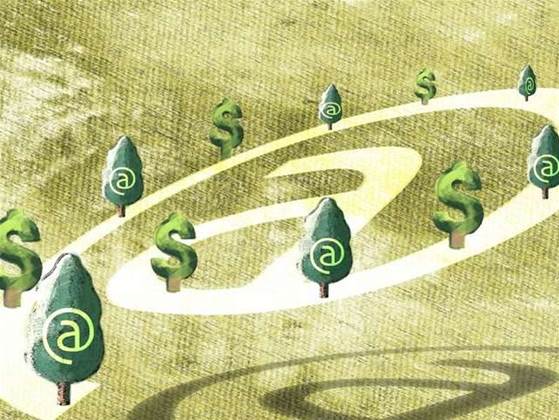Green IT industry leaders told iTnews they would keenly watch market perceptions of the Federal Government's decision to delay the carbon pollution reduction scheme until 2011.

Prime Minister Kevin Rudd also increased pollution reduction targets to a quarter of 2000 levels by 2020.
It was seen as a win for industry and green groups.
But sustainability consultancy Fujitsu Australia said it could stunt revenues.
"Some organisations are driven by the economic benefits of [participating in] the carbon pollution reduction scheme, so the delay might make it more difficult for us to have discussions around the price of carbon [with them]," said Fujitsu's head of sustainability, Alison O'Flynn.
"There is a 12-month delay in those potential revenue opportunities."
But she was optimistic that organisations would still see value in implementing green practices where the primary driver is to save money. She believed this would continue regardless of the delayed scheme.
"Organisations also still need to measure emissions to get set for carbon trading," O'Flynn said.
"They're still grappling with having to report their carbon footprints."
That view is supported by Fadi Geha, chief executive officer of Viewlocity Technologies, the maker of software tool CarbonView.
"We're not seeing an issue [with the delay] at the moment but if it's something the market perceives to be an issue then I'd be interested to see why that's the case," Geha said.
"The emissions trading scheme ... was a bit of a distraction for people having to report under the National Greenhouse and Energy Reporting Scheme in July.
"The delay of the reduction scheme isn't going to impact CarbonView sales because people still have to report for (the scheme). At the end of the day, that's our focus."
Tandberg's regional director for Australia and New Zealand, Phil Siefert, said the delay won't impact the videoconferencing market.
Videoconferencing is one of the key benefactors of a surge in interest from organisations - including the Federal Government - seeking to lower the costs and emissions associated with air travel.
"[The sales pitch] never got as specific as ‘If you use visual communications it's going to improve your [carbon] trading position'," Siefert said.
"The Government didn't erase a big portion of my sales pipeline because of the decision it made on the scheme."
Siefert believed the need for auditing and reporting of emissions would drive more opportunities in the green space than carbon trading.
He said Tandberg experienced strong demand for videoconferencing among energy companies.
Federal and state government departments and financial institutions were also showing interest, he said.



.png&h=140&w=231&c=1&s=0)
_(22).jpg&h=140&w=231&c=1&s=0)
_(20).jpg&h=140&w=231&c=1&s=0)




_(26).jpg&w=100&c=1&s=0)
 iTnews Executive Retreat - Security Leaders Edition
iTnews Executive Retreat - Security Leaders Edition












_(1).jpg&h=140&w=231&c=1&s=0)



